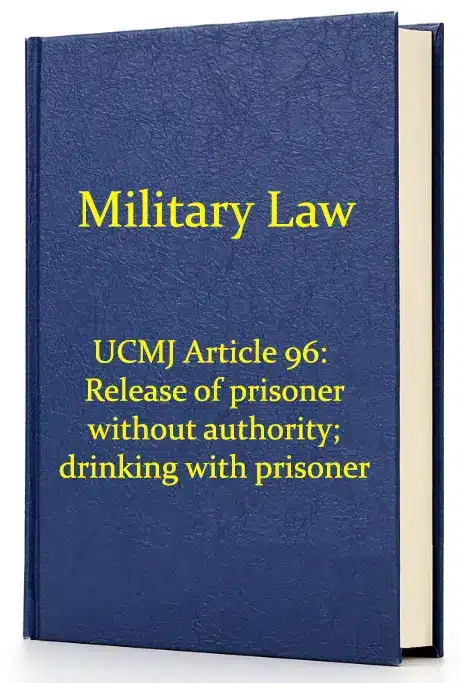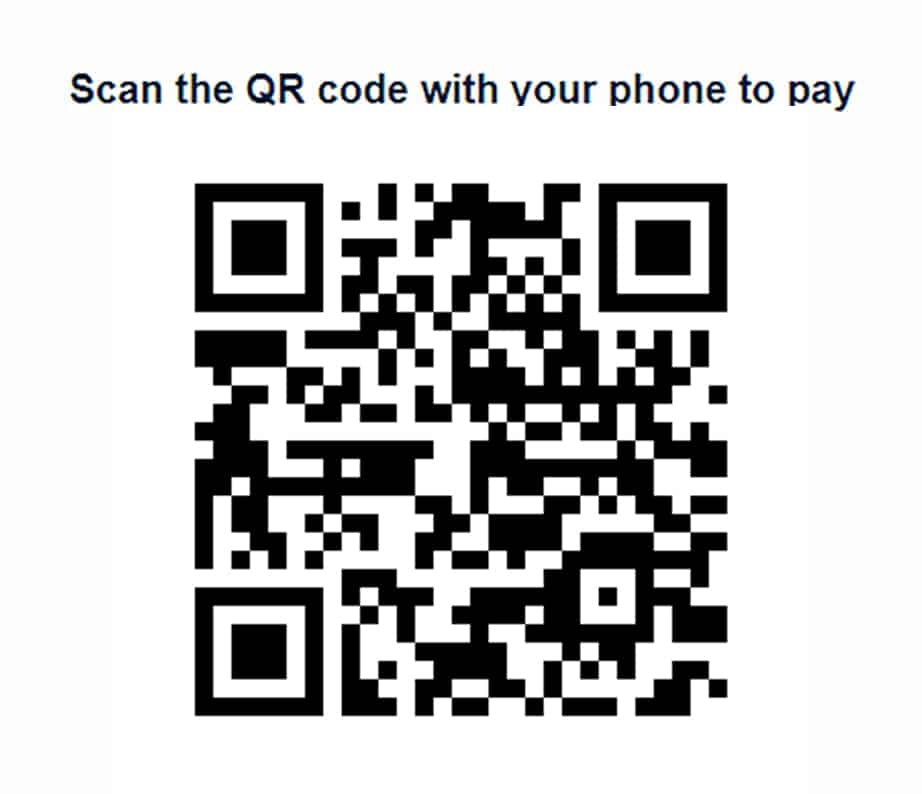The MCM states under Article 96 that any service member may be subject to prosecution if they release a prisoner without authority, allow for the escape of a prisoner through neglect or design, or drink alcoholic beverages with a prisoner.
To be prosecuted for releasing a prisoner without authority, the prosecution must demonstrate the released person was a prisoner, and the accused fired the prisoner without proper authority.
The accused may be prosecuted for allowing a prisoner to escape through neglect if it can be proven that the escaped person was a lawful prisoner, the prisoner escaped, and the accused failed to take reasonable precautions within their legal capacity to prevent said escape.
Allowing a prisoner to escape through design may be charged if the person was a prisoner; the design of the accused enabled the prisoner to escape intentionally, and the prisoner escaped as a direct result of the design of the accused.
Drinking with a prisoner is also a punishable offense. However, the person with whom the accused was drinking must have been a lawful prisoner at the time, and the beverages consumed had to have been alcoholic.
Understanding Article 96 (Release of prisoner without authority; drinking with prisoner) of the UCMJ
A prisoner is in confinement, custody, or under sentence of a court martial. The release of the prisoner can only occur if the accused, not the prisoner, conducts the removal of restraints. Usually, the lowest authority permitted to order the release of a prisoner is that of the commander who convened the prisoner’s court-martial or the officer exercising general court-martial jurisdiction over the prisoner.
“Allowing a prisoner to escape” means the accused did not act to forbid or hinder the escape. When this occurs through neglect, it is usually a result of a lack of conduct taken by the accused. However, “neglect” is relative and may be based on what is considered reasonable. “Escape” refers to the prisoner freeing themselves from confinement before being released by the proper authority. The prisoner’s status after the escape may not be used as a defense.
“Allowing a prison to escape through design” means the accused intentionally engaged in behavior that allowed the prisoner to escape. Intent may be demonstrated through the actions of the accused who lacked the care or responsibility necessary for their position. This results in a reasonable inference that the accused intended for the escape to occur.
Drinking alcoholic beverages with a prisoner is deemed unlawful unless the accused has been granted the specific authority to do so by a competent authority.
Maximum Possible Punishment for Violations of Article 96
The maximum possible punishment for releasing a prisoner without authority includes a dishonorable discharge, forfeiture of all pay and allowances, and confinement for two years.
The maximum punishment for allowing a prisoner to escape through neglect is a bad-conduct discharge, forfeiture of all pay and allowances, and two years of confinement.
The maximum punishment for allowing a prisoner to escape through design is a dishonorable discharge, forfeiture of all pay and allowances, and five years of confinement.
The maximum possible punishment for drinking with a prisoner includes confinement for one year and forfeiture of 2/3 pay per month for one year.
How do you defend against Article 96 Release of prisoner without authority; drinking with prisoner charges?
When facing the combined resources of the military and the current cultural climate, you need to be prepared to defend your career and your freedom. Crisp and Associates, LLC has a team of experienced trial attorneys who have won these cases. This team includes the firm’s founder, Jonathan Crisp, a highly respected former Army JAG with over 23 years of experience in military law and a sought-after speaker and lecturer on martial law. Donald Gordon has litigated cases before the Discharge Review Board, the Board for Correction of Military Records, and the Board for Correction of Naval Records regarding various matters and a diverse background of clients.
If you or someone you know is facing Article 96 charges for Release of a Prisoner Without Authority; Drinking with Prisoner charges, you need to speak with a Military defense attorney right away that the released person was a prisoner.


